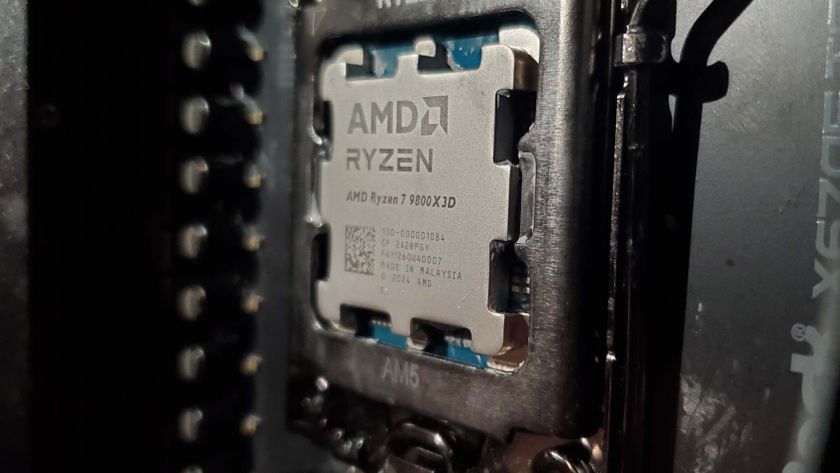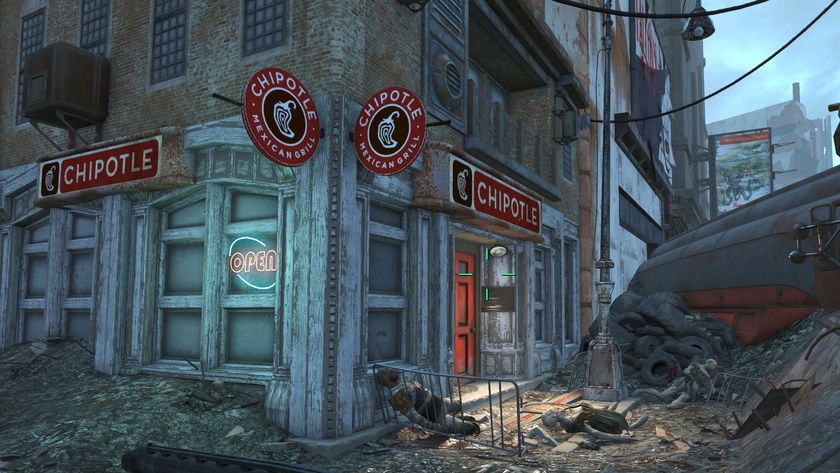It's apparently down to AMD whether Nvidia releases its RTX 50-series GPUs in 2024 or not
Insiders suggest Nvidia has the RTX 5090 prepped for release at the end of 2024 "if we want it to."
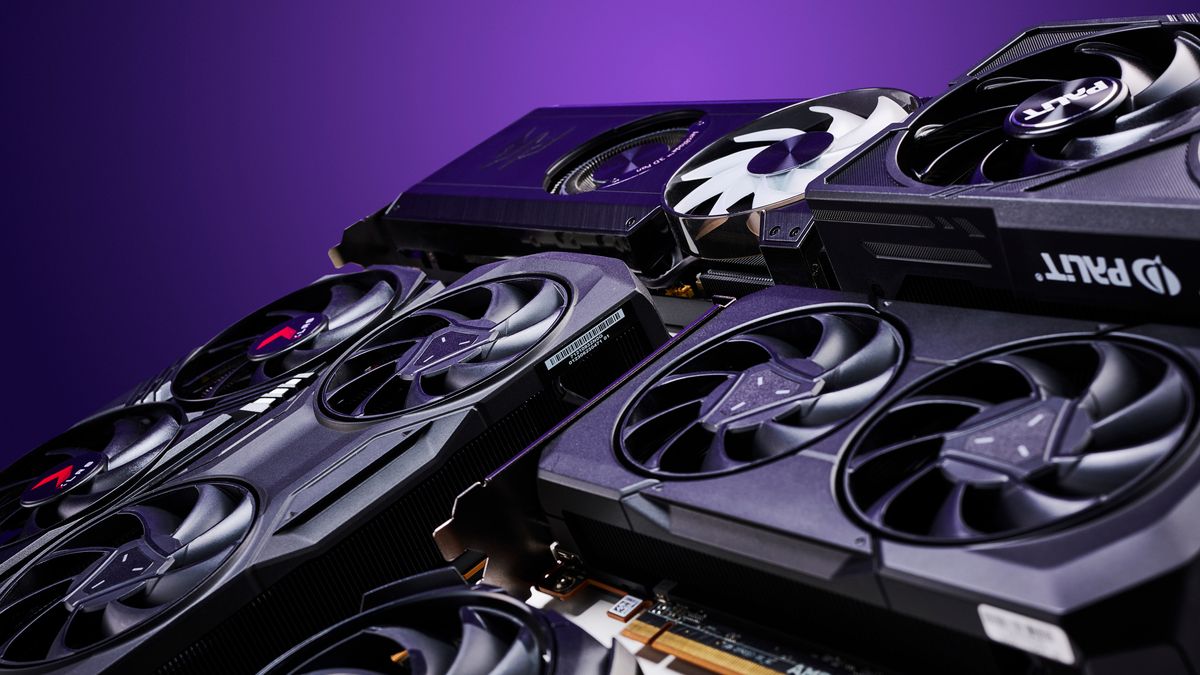
A new video released by notorious rumour channel Moore's Law is Dead is digging into the potential RTX 5090 release date and quotes a source, claiming to be from inside Nvidia, stating that whether it launches its next-gen cards in 2024 will be largely down to how competitive AMD's RDNA 4 GPUs will be.
The claim is that the next-gen consumer architecture will be based on the Blackwell GPU design, and is being "prepared to be ready to launch in Q4 2024 if we want it to." The two things that will reportedly make Nvidia's decision for it will be how well the current RTX 40-series is selling through the next year, and whether AMD launches its own next-gen cards in a state that can claw back end-of-year sales from the green team.
Given that AMD's RDNA 4 GPUs are said to be focusing purely on the mid-range market it would be unlikely that any new Radeon graphics card would take any sales away from Nvidia's high end. But if it does have a successful launch, and starts to really impact Nvidia's volume sales, then that might encourage Jen-Hsun to drop a new halo product to turn peoples' heads and remind them there's a new GeForce gen on the way.
So yeah, if you want a next-gen Nvidia GPU in 2024 then you've got to pin your hopes on AMD sticking the RDNA 4 launch, and sucking up as much potential graphics card market share as possible.
On the other hand, if Nvidia's proposed launch of the new RTX 40-series Super cards at the start of 2024 pushes prices down and performance up then that could cement the Ada generation as the go-to cards for the next 12 months. And that in turn would make it tough to see why Nvidia would then cannibalise itself with an RTX 5090 launch at the end of the year.
Still, however things look by this time in 2024, the source is suggesting that it is "currently planning to make a big deal about RTX 5000 efficiency at CES 2025. So either way we will be launching next-gen by the start of 2025."
Which is certainly earlier than I feared when we first heard the reports of Nvidia's next-gen cards not arriving until 2025. I had a horrible feeling it might just sit on its Ada laurels for a late year launch and we'd be hanging on an age before we saw Blackwell in the desktop. It's still going to be at least a year, but it does mean there's a chance, just a chance we might have truly next-gen GPUs in 2024.
The biggest gaming news, reviews and hardware deals
Keep up to date with the most important stories and the best deals, as picked by the PC Gamer team.
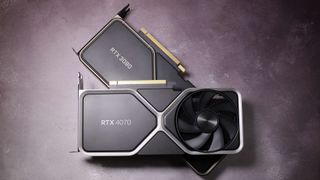
Best CPU for gaming: The top chips from Intel and AMD.
Best gaming motherboard: The right boards.
Best graphics card: Your perfect pixel-pusher awaits.
Best SSD for gaming: Get into the game ahead of the rest.
But how will they perform? That's the key question and the final bit of the MLID quote claims that, as an architecture, Blackwell won't deliver the same level of pure raster uplift that you saw going from the RTX 30-series to the RTX 40-series. The caveat to this is that final specs are still far from set in stone and the suggestion is a full GB202 chip might have enough about it to deliver a sufficient performance boost over the current RTX 4090 to make it feel like just as big of a jump as it was from the RTX 3090.
The RTX 4090 after all doesn't use the full AD102 GPU, largely because Nvidia didn't feel like it needed to use up each perfect chip on its top consumer card.

Dave has been gaming since the days of Zaxxon and Lady Bug on the Colecovision, and code books for the Commodore Vic 20 (Death Race 2000!). He built his first gaming PC at the tender age of 16, and finally finished bug-fixing the Cyrix-based system around a year later. When he dropped it out of the window. He first started writing for Official PlayStation Magazine and Xbox World many decades ago, then moved onto PC Format full-time, then PC Gamer, TechRadar, and T3 among others. Now he's back, writing about the nightmarish graphics card market, CPUs with more cores than sense, gaming laptops hotter than the sun, and SSDs more capacious than a Cybertruck.
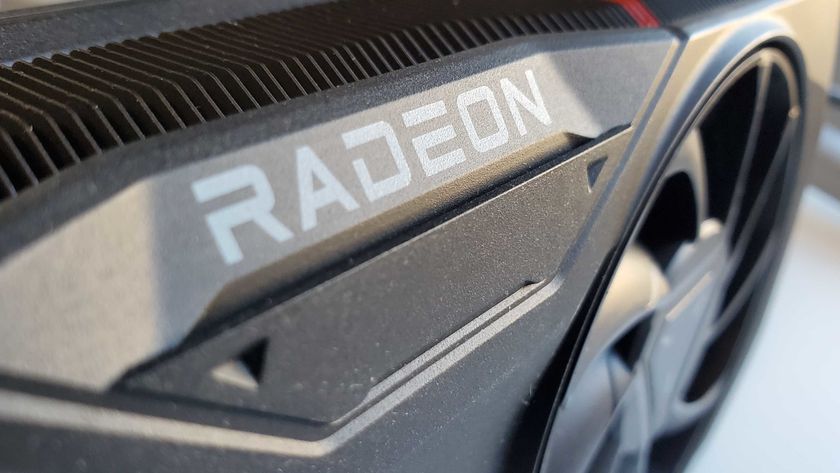
The first Radeon was superior to Nvidia's GeForce2 in almost every way but it set the tone for how AMD would fair against the jolly green giant for the next 25 years
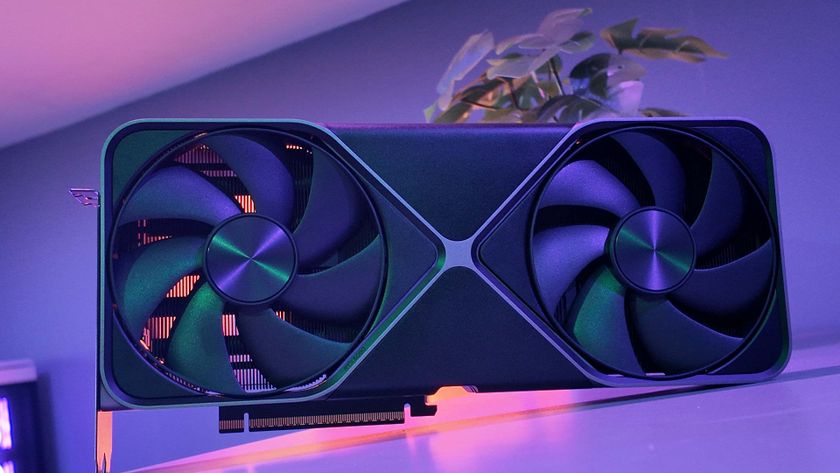
The first Nvidia RTX 50-series GPU makes an appearance in the Steam hardware survey and it's the RTX 5080 that has the honour






